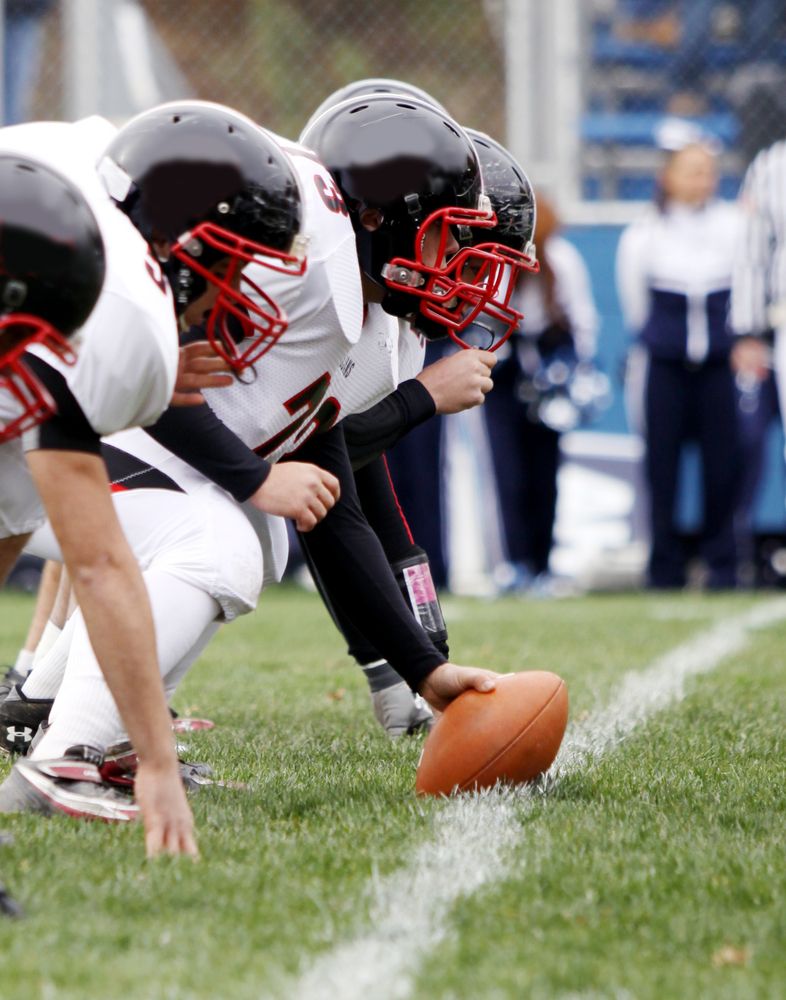Top Class Actions’s website and social media posts use affiliate links. If you make a purchase using such links, we may receive a commission, but it will not result in any additional charges to you. Please review our Affiliate Link Disclosure for more information.

Each class action asserts that “for decades” the defendants “knew about the debilitating long-term dangers of concussions, concussion-related injuries, and sub-concussive injuries (referred to as ‘traumatic brain injuries’ or ‘TBIs’) that resulted from playing college football, but actively concealed this information to protect the very profitable business of ‘amateur’ college football.”
The NCAA football concussion class action lawsuits state that football players can suffer multiple hits to the head and brain of 10g (gravitational force), 20g, or even up to 100g.
According to Kevin Guskiewicz, a sports medicine researcher, a 100g football-related head injury is like driving a car into a brick wall at 25 mph without wearing a seat belt.
The class actions cite multiple studies from the 1920’s through today showing that repeated concussions can lead to “memory loss, dementia, depression, Chronic Traumatic Encephalopathy (‘CTE’), Parkinson’s disease, and other related symptoms” which could “slowly strangle their brains.”
The class action complaints proclaim that despite knowing about this research on TBIs for decades, the NCAA and collegiate conference defendants did nothing to protect players from multiple TBIs until 2010, when they required members to create a Concussion Management Plan.
Under these plans, schools are supposed to remove players to show signs of a concussion from playing for the remainder of the day.
In addition, players are supposed to tell coaching staff when they may be suffering from a concussion.
However, the class actions contend that injured players are too impaired to judge for themselves whether or not they should play.
“For an injured student, Defendants stand in the role of a guardian tasked with making decisions in the student’s best interest,” the complaints argue.
The class actions assert that, “For decades, Defendants have failed to fulfill that role and have instead acted in their own best interest, all to the life-long detriment of thousands of 18- to 22-year-olds.”
The seven football player plaintiffs who are bringing these actions are: Henry Davison, who played for Mississippi State from 1974-1978; Rodney Gallon, who played for Florida State from 2004-2008; Demoreo Ford, who played for the University of Kentucky from 2005-2009; James “Clay” Harrison, who played for Murray State from 2000-2005; Ryan Hill, who played for the University of Miami from 2006-2010; Willie Johnson, who played for the University of Louisville from 2003-2005; and Jamie Richardson, who played for the University of Florida from 1994-1996.
All of the players claim that they remember getting concussions, or their “bell rung,” and playing more football directly afterwards. The players also describe having various symptoms of head trauma, such as memory loss, headaches, depression, and mood swings.
A similar action was settled by the National Football League for former professional football players.
These class action lawsuits seek to obtain restitution and damages for Classes of all individuals who participated in the varsity football programs between 1952 and 2010 of Mississippi State, the University of Kentucky, Florida State University, Murray State, University of Miami, University of Louisville, and the University of Florida.
The football players are represented by William Winingham of Wilson Kehoe Winingham LLC, Jay Edelson, Benjamin H. Richman, and Rafey S. Balabanian of Edelson PC, and Jeff Raizner of Raizner Slania LLP.
The NCAA Football Concussion Class Action Lawsuits are Henry Davidson v. Southeastern Conference, et al., Case No. 1:16-cv-2333; Rodney Gallon v. Atlantic Coast Conference, et al., Case No. 1:16-cv-2334; Demoreo Ford v. Southeastern Conference, et al., Case No. 1:16-cv-2336; James Harrison v. Ohio Valley Conference, et al., Case No. 1:16-cv-2337; Ryan Hill v. University of Miami, et al., Case No. 0:16-cv-2339; Willie Johnson v. Conference USA, et al., Case No. 1:16-cv-2341; and Jamie Richardson v. Southeastern Conference, et al., Case No. 1:16-cv-2342; all in the U.S. District Court for the Southern District of Indiana.
Join a Free NFL Concussion Settlement Investigation
If you suffered from concussions or head trauma as result of playing football for an NFL team, you may qualify to benefit from this NFL concussion settlement. Enlisting the help of experienced attorneys familiar with the NFL settlement process could help maximize the amount of money you are awarded. Click on the “Learn More” link on this page now for a free, immediate, and confidential case evaluation.
The attorneys who work with Top Class Actions will contact you if you qualify to let you know if you qualify to benefit from this NFL concussion settlement. Hurry — statutes of limitations may apply.
ATTORNEY ADVERTISING
Top Class Actions is a Proud Member of the American Bar Association
LEGAL INFORMATION IS NOT LEGAL ADVICE
Top Class Actions Legal Statement
©2008 – 2024 Top Class Actions® LLC
Various Trademarks held by their respective owners
This website is not intended for viewing or usage by European Union citizens.














